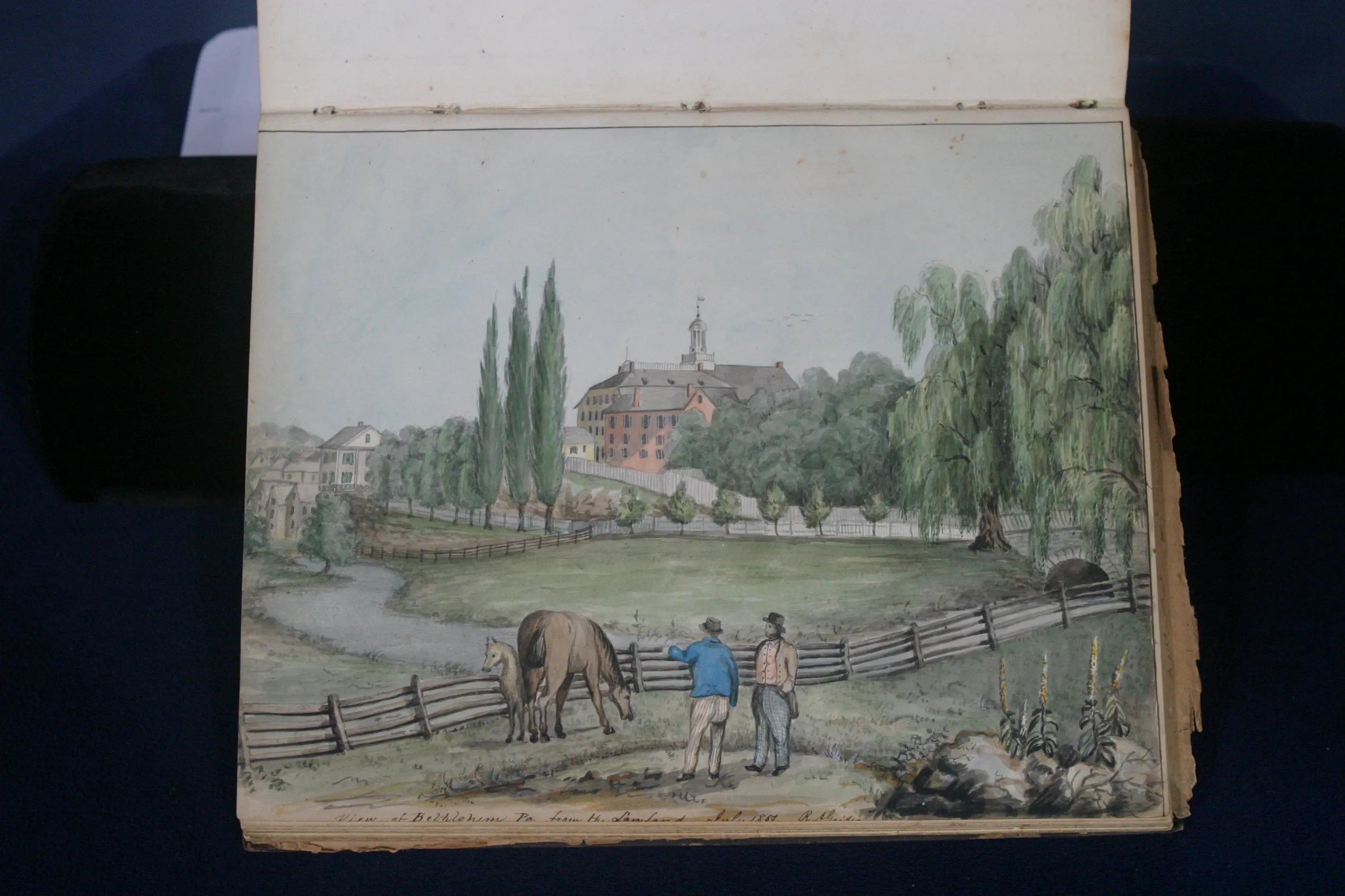GUEST: It's the minutes of the Arkansas Territorial Legislative Council from the years of 1825 through 1829. And basically it just lists various bills that were proposed and discussed and passed by the Arkansas Territorial Legislature at that time.
APPRAISER: And when we were looking at it, it not only proposed bills, but it also in many ways was giving a lot of the territorial history. But then you get into a really nice section here where the governor was giving the address. Why don't you tell me about those?
GUEST: The governor was addressing the council about a report that the Mexican army had invaded southern Arkansas through Texas, which was a country at that time. And he just said that they were going to attack some Comanche Indians, but eventually the people who were attacking dispersed of their own accord and everything was okay.
APPRAISER: So, you're getting a lot of the governor history, Mexico, Texas, Arkansas. Now there's one passage in here where you get into an issue about slavery.
GUEST: Well, the bill was proposed making it illegal for constables to execute and sell slaves. And that bill was discussed, and eventually passed.
APPRAISER: I mean, you know, that really shows a difference in time, where you have to make a law to say that you can't execute and sell slaves. How'd you get this? Where did it come from?
GUEST: My grandfather was in the state legislature in the '20s and '30s and '40s, and Speaker of the House in 1945, and his brother apparently was in the state legislature around 1900 or before 1900. So it might have come down through the family.
APPRAISER: Sounds like an old Arkansas family that's been very prominent in the politics and so on.
GUEST: Right.
APPRAISER: One of the reasons I asked about why and where this came from, this is a government document. This is something that came from, obviously, the territory and so on. And you really have to research very carefully how did they get it, where did it come from, does it actually still belong to the state of Arkansas? Because there's a lot of laws and issues that you get into with these old documents that... are they actually still the property of the state and so on. And, in many ways, a document like this is a very major part of Arkansas history. This is something that has such a tremendous value to the state, the state itself. It's a great historical item, it's a great archive. It's very hard to appraise something like this, because there's only one of them. It's not like you can go and say, "Well, yeah, I've sold or seen sold things." But similar documents, it would probably be in the $10,000, $15,000 range, at a minimum. And I'm thrilled that you brought it in. I could sit here and read it for the next half-hour, an hour.
GUEST: Go right ahead.
APPRAISER: I won't right at the moment, but it's fine. Thank you.
GUEST: Well, thank you very much, I appreciate it.









